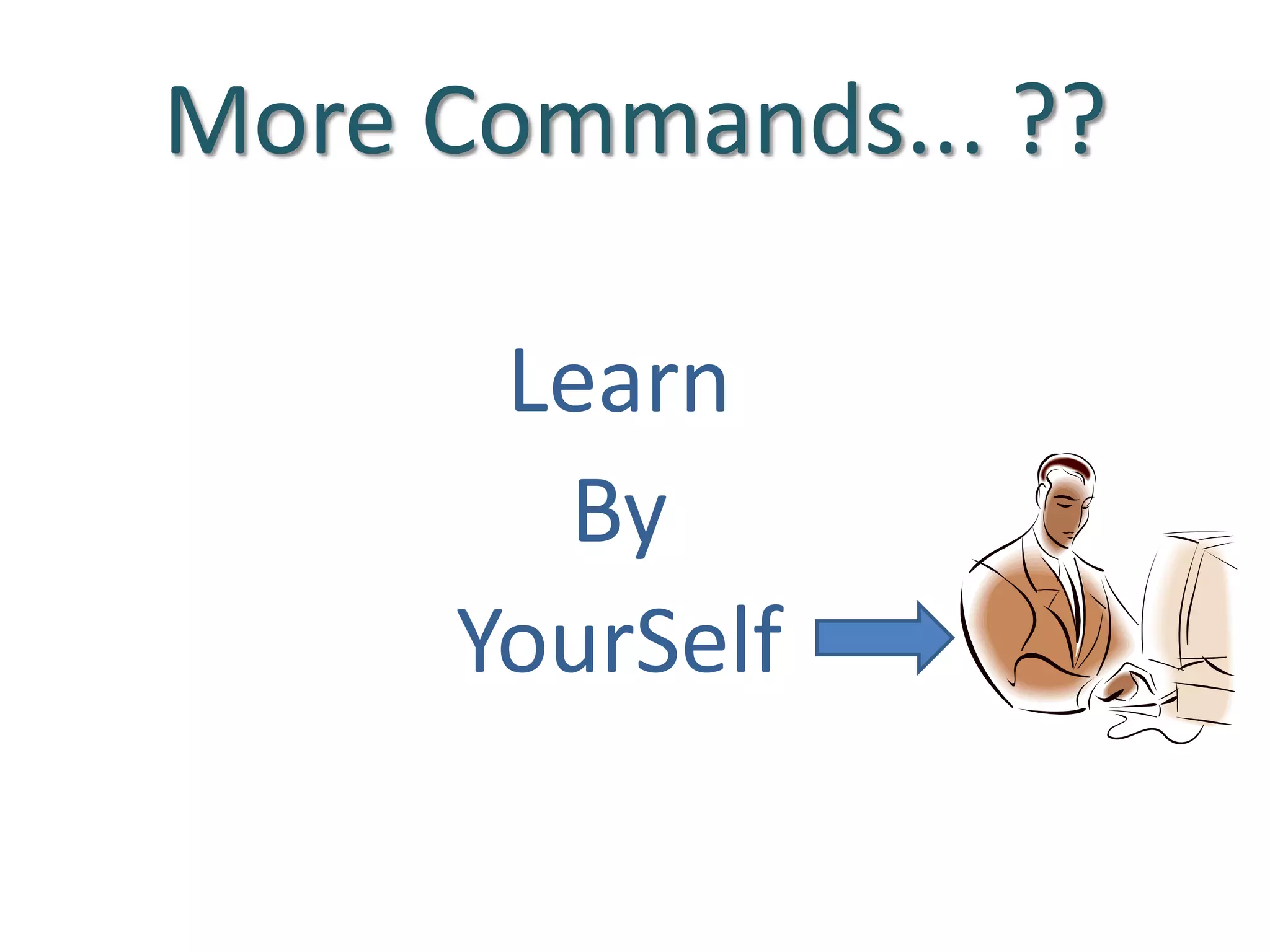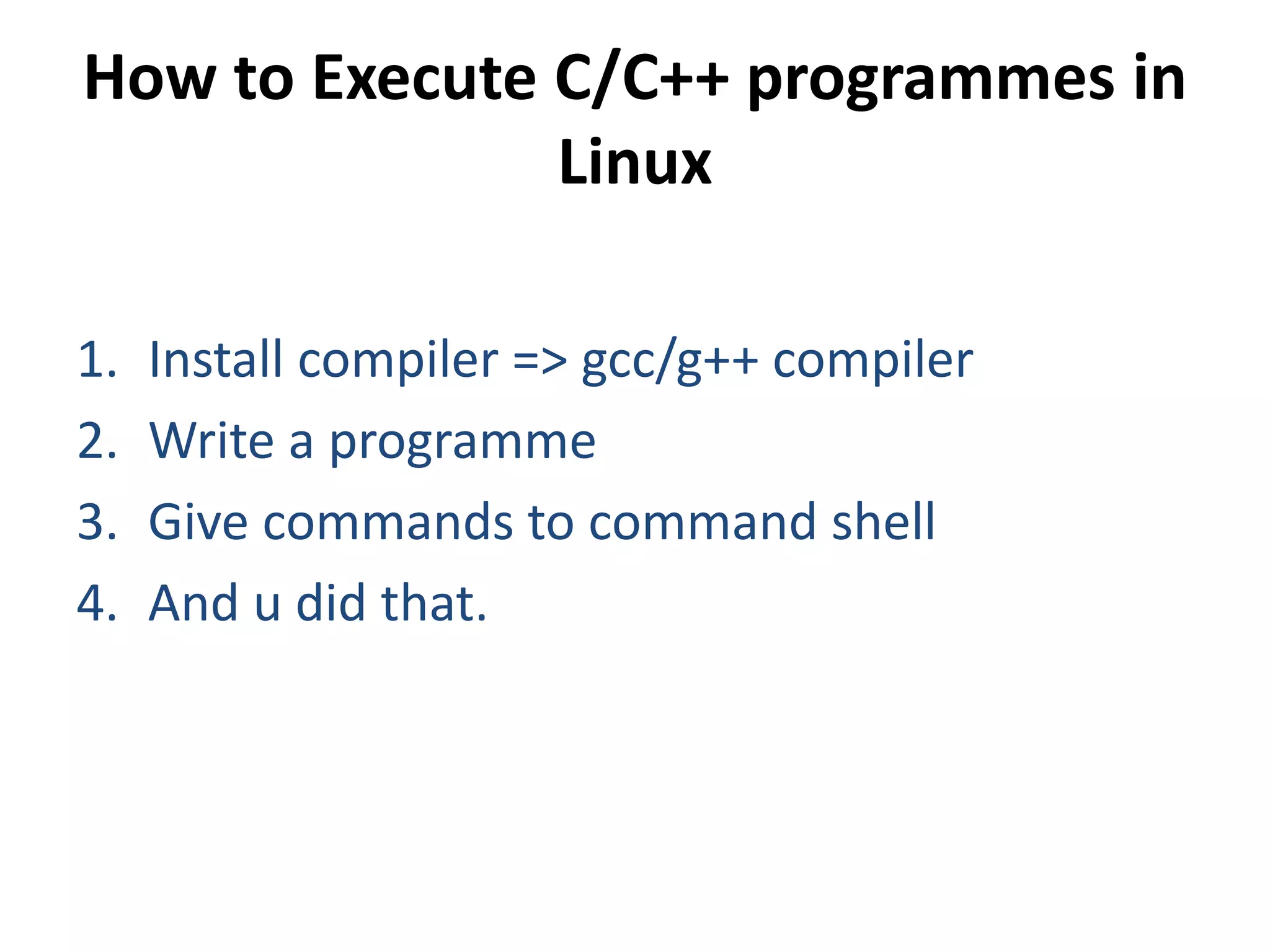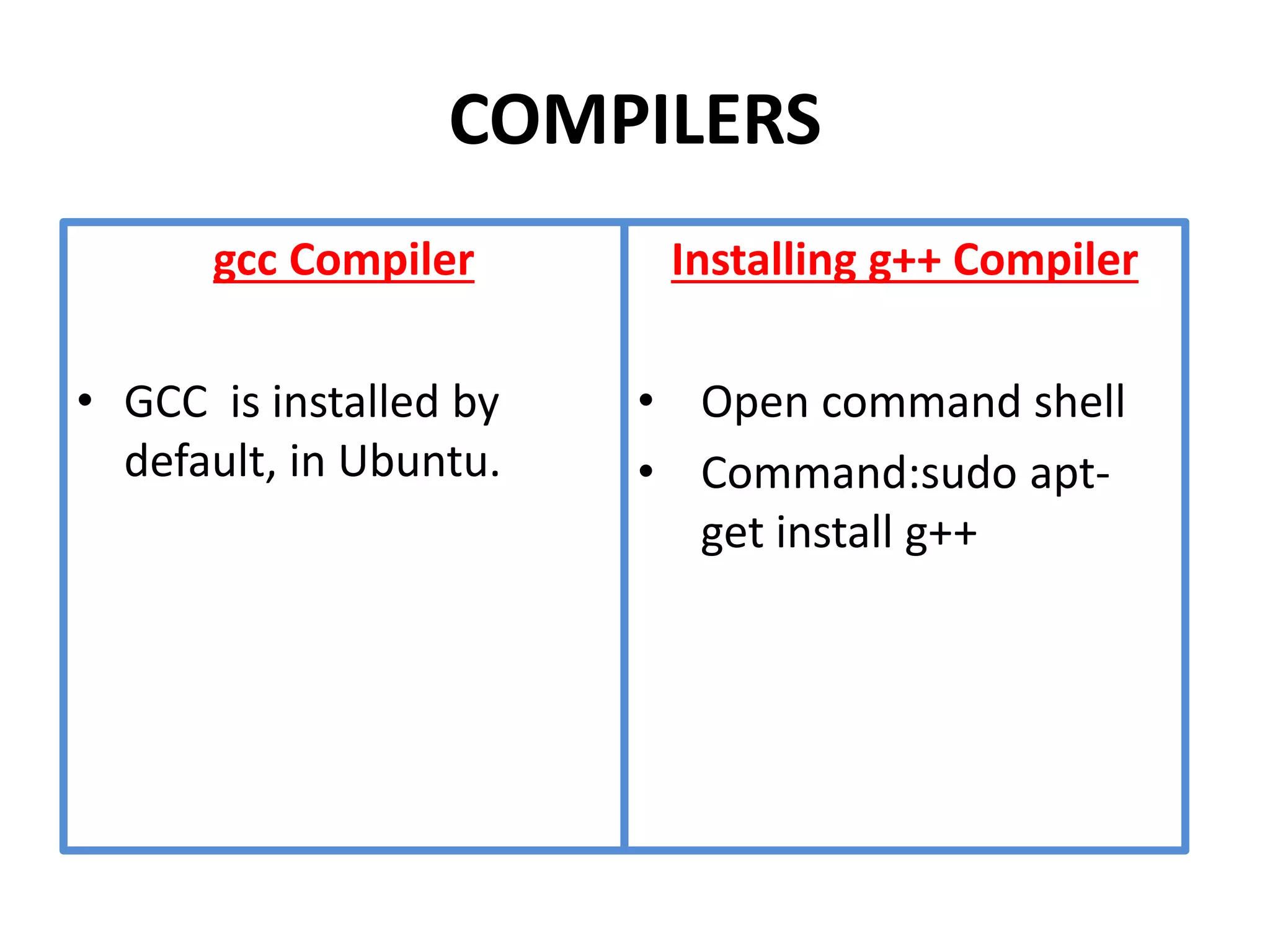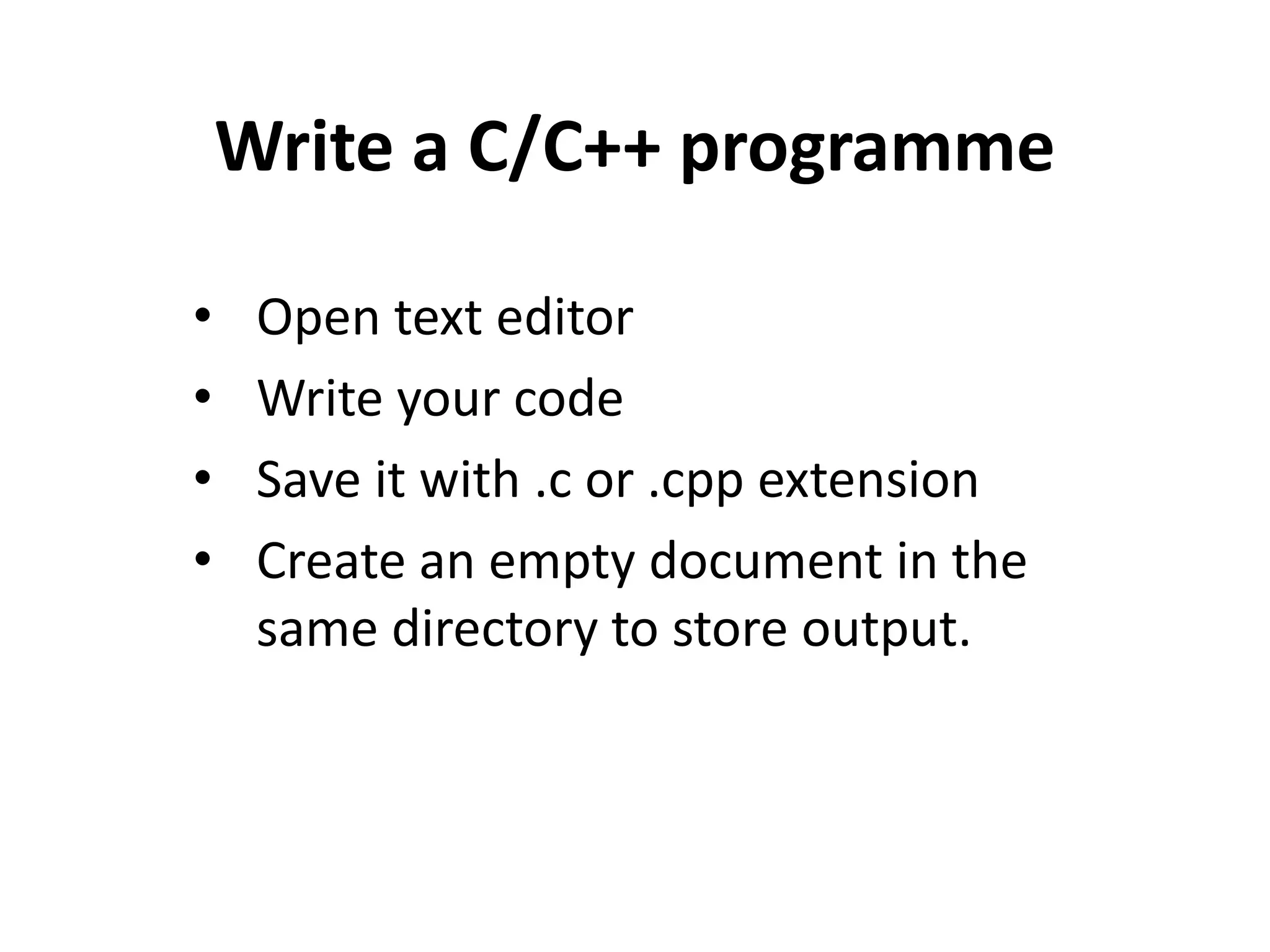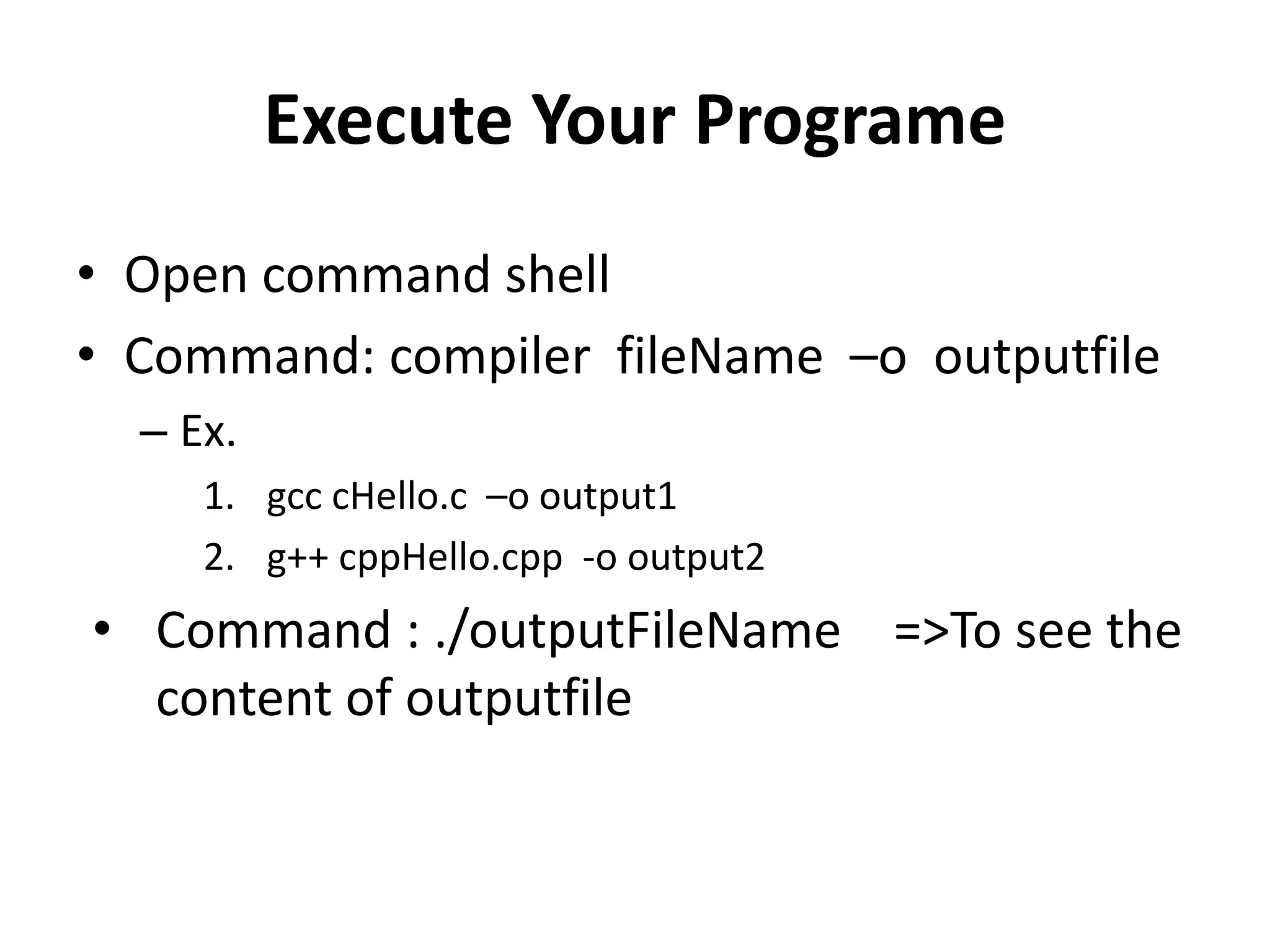The document outlines essential Linux commands categorized into file handling, text processing, system administration, process management, and network commands. It provides specific command syntax and examples for operations like creating directories, listing contents, copying, moving, and deleting files, along with instructions for compiling and executing C/C++ programs using the GCC and G++ compilers. Additionally, it emphasizes the use of the command shell for executing various tasks in Linux.
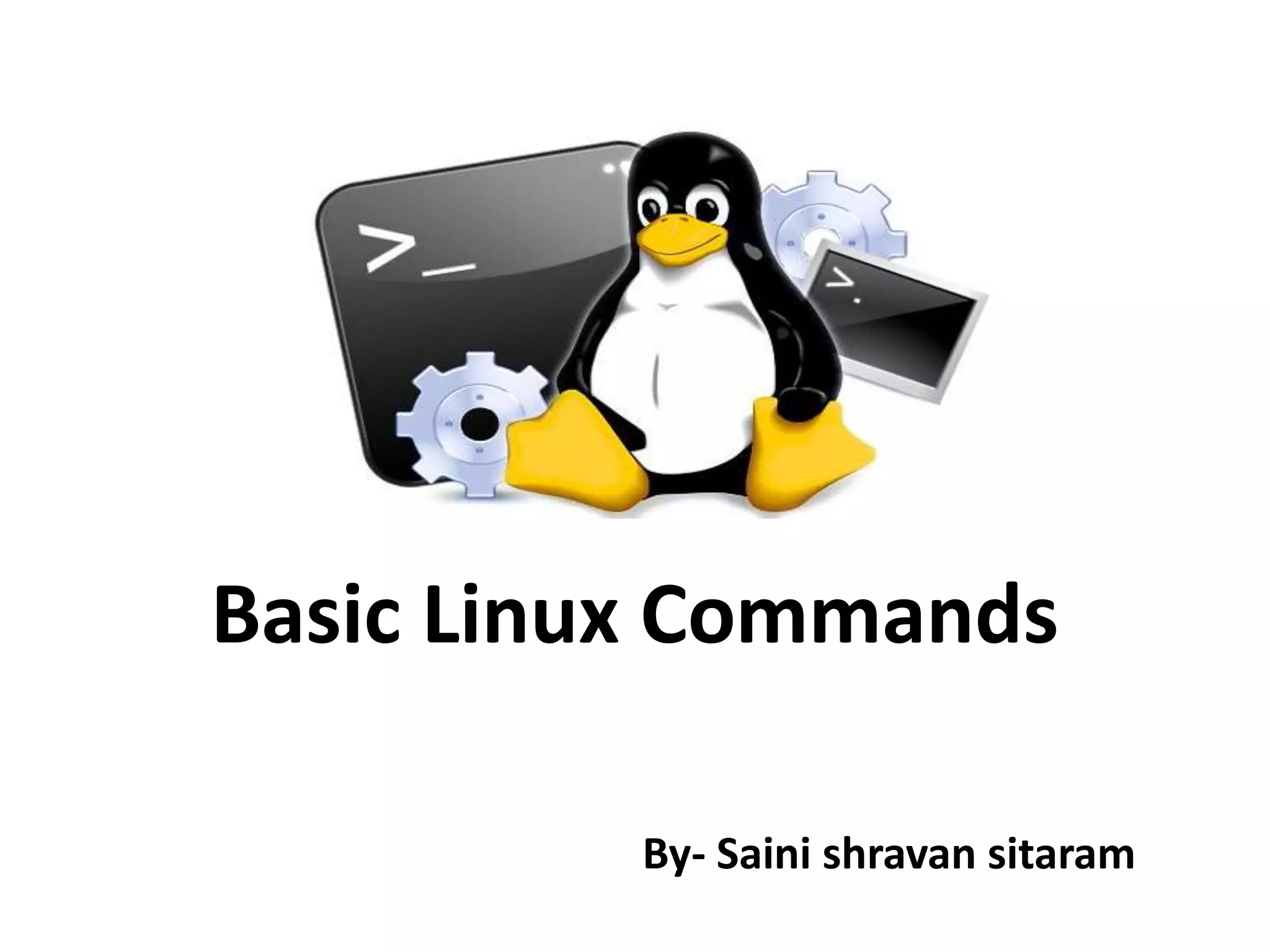
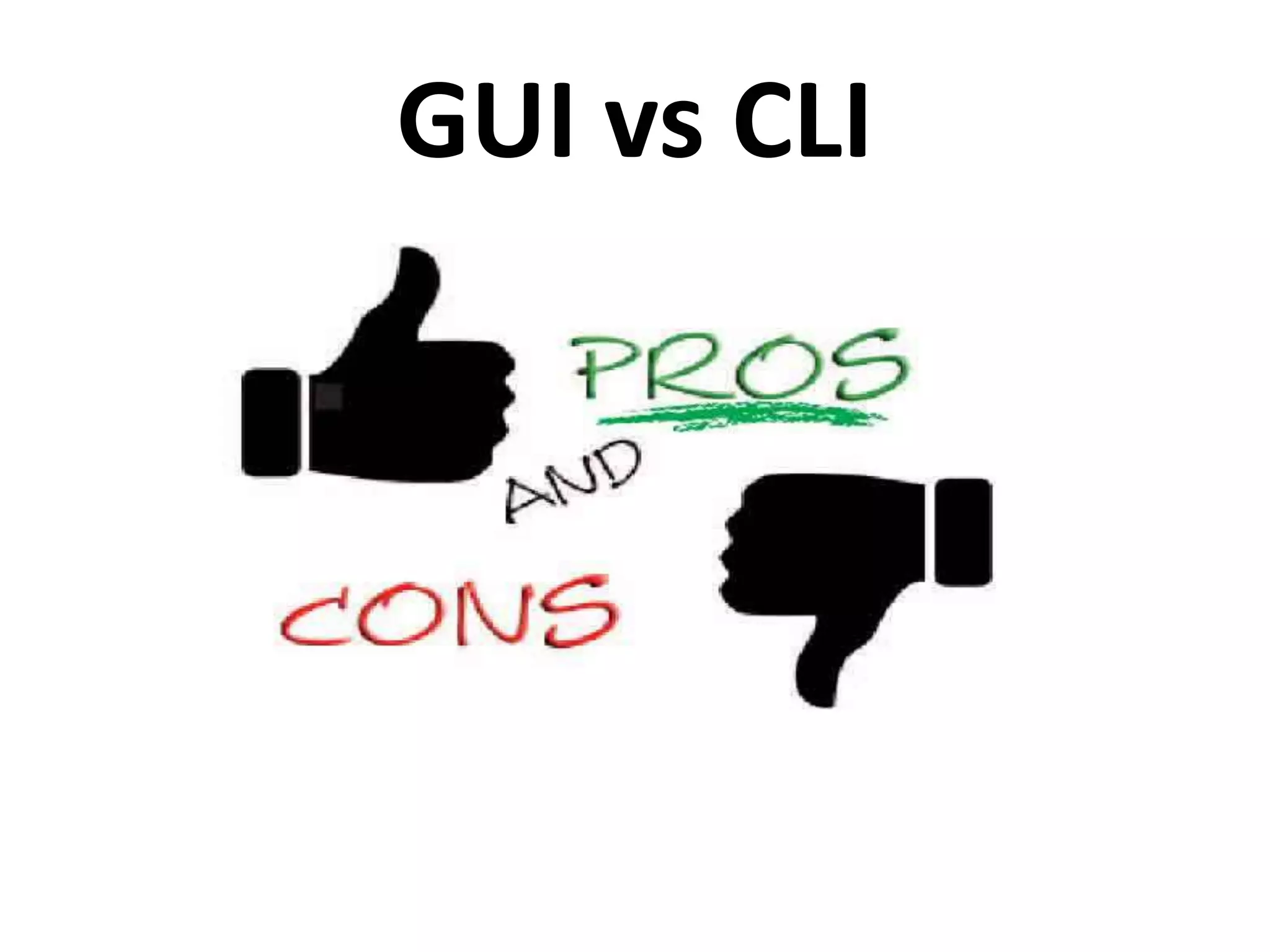
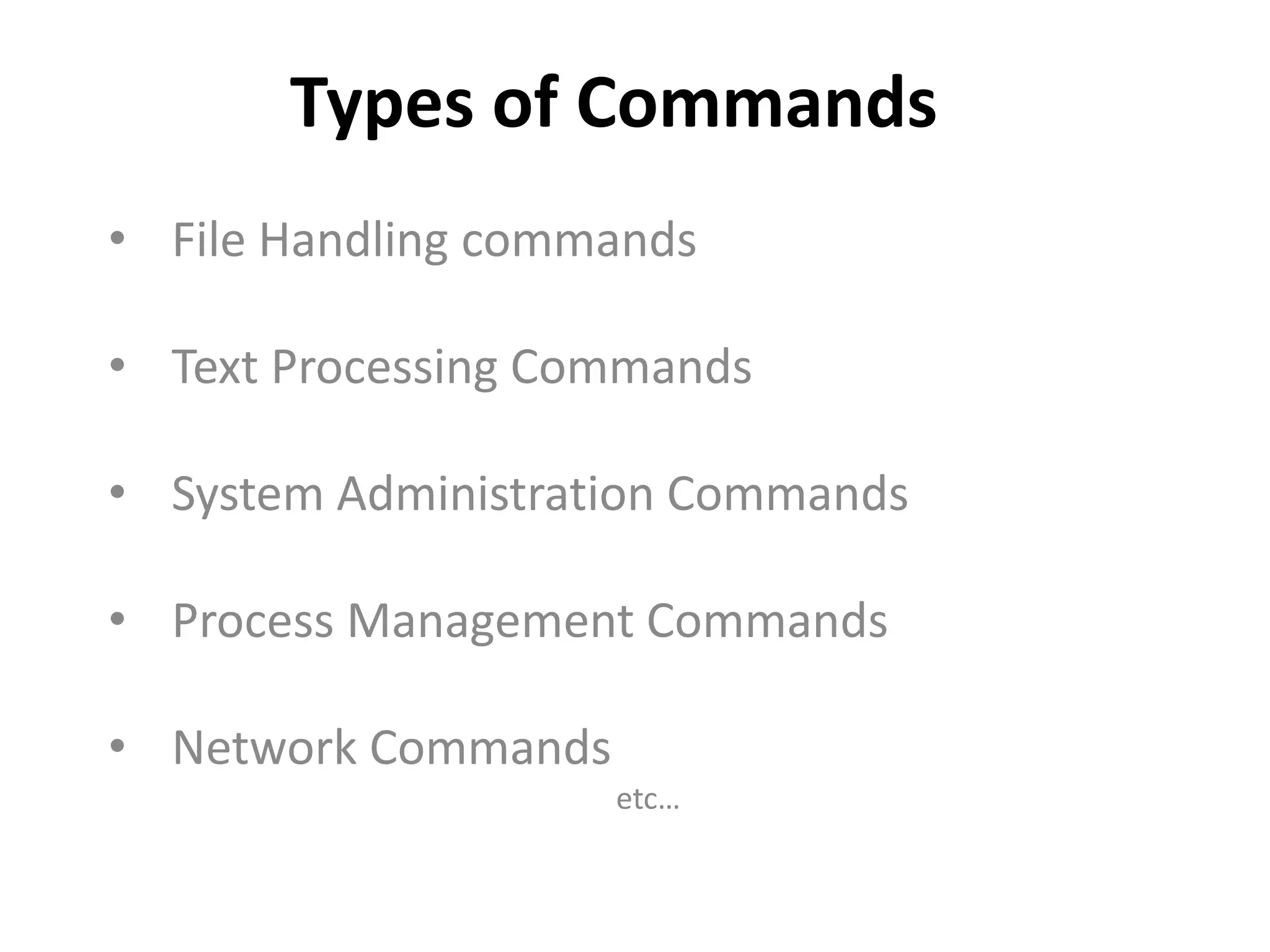
![File Handling commands
• mkdir - make directories
Syntax: mkdir [OPTION] DIRECTORY...
eg. mkdir Movies
• ls - list directory contents
Syntax: ls
eg. : ls
• cd - changes directories
Syntax: cd Directory1/Directory2
eg. : cd Desktop/presentation
cd .. ,cd /](https://image.slidesharecdn.com/basiccommandsoflinux-161223121032/75/Basic-commands-of-linux-4-2048.jpg)
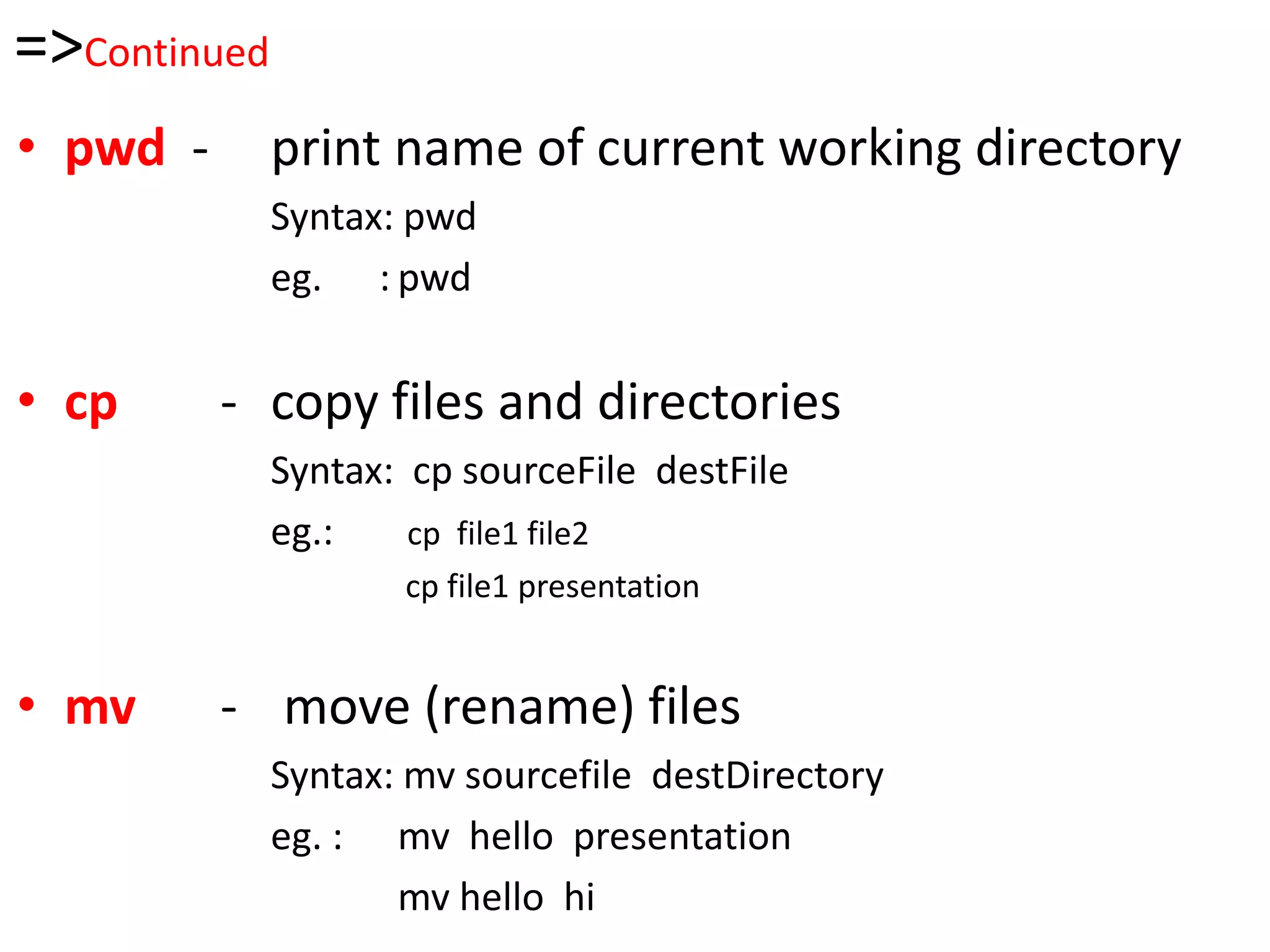
![=>Continued
• rw - remove files or directories
Syntax: rw fileName
eg. : rw hello.txt
rw –rf pictures
• find - search for files in a directory hierarchy
Syntax: find [path] [pattern]
eg.: find file1.txt
• history - prints recently used commands
Syntax: history
eg. : history](https://image.slidesharecdn.com/basiccommandsoflinux-161223121032/75/Basic-commands-of-linux-6-2048.jpg)
